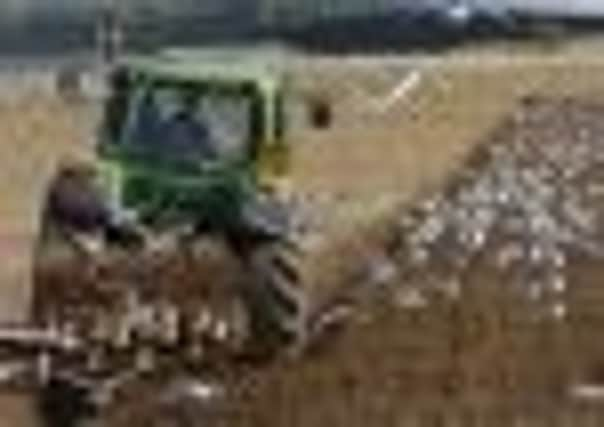Andrew Arbuckle: Independence debate must cut industry a straight furrow


If you doubt the veracity of that, I recently attended a meeting where the systemic failings in the council IT infrastructure were on the agenda.
One councillor, who had not taken on the gravity of the problem, raised her hand to inform everyone that she was having difficulties with her BlackBerry.
Advertisement
Hide AdAdvertisement
Hide AdA colleague who had listened to the failings in the computer system then chipped in that his holiday baggage had gone amiss as a result of a similar fault at some overseas airport.
This is rather a roundabout way of introducing my concerns that we are spending a great deal of time arguing how many questions there should be on an independence ballot sheet while I would like to know about the endgame.
In farming terms, in an independent Scotland, shall I be living in the Elysian fields or shall I be looking at a barren and abandoned landscape?
A couple of weeks ago, as we awaited the arrival of the UK agricultural minister, the farming press ganged up on Nigel Miller, NFU Scotland president, to ask the union’s position on independence.
Wisely, and no doubt thinking that across the breadth of his membership there would be a range of views, he ducked the question.
The question that should have been asked, and I am doing it now, is how in economic terms will farming fare if we become an independent nation? It is an economic query, not a political one.
I have heard the claim that Scotland will become the sixth most prosperous country in the world but is this just political rhetoric or potential reality?
We seem to be running largely on emotion, while I would like to see robust economic figures before I put a tick in either one box or several boxes.
Advertisement
Hide AdAdvertisement
Hide AdSince the establishment of the Scottish Parliament in 1999, farming has been at the forefront of devolution and it now has many rural policies specifically suited to this country. Economi-cally, it has always operated as an essential part of the UK.
England is the largest single market for Scottish farm produce but will this equation change with separation? There is a whole stack of questions, such as two thirds of Scottish beef and lamb goes to England and 80 per cent of the pig meat, but will Scottish independence encourage more regions of England to launch their brands and will they then take more of the market based on a “buy local, buy British campaign”?
One Scottish farming and marketing entrepreneur has suggested there is a backlash on some of his products in the English market. This is to be regretted, but will petty nationalism south of the Border become a more common feature and, if so, what are the economic consequences?
That is an important issue because Scotland is a net exporter of most of its farm produce; while beef and lamb top the list, potatoes, soft fruit, and vegetables also head south in large tonnages.
There is one exception to the above and that is grain, which is ubiquitous and will continue to flow to and fro across the Border.
I am sure the Scottish whisky industry will continue to resist any suggestion that its product must be made with Scottish grain.
I have no doubt that one of the biggest changes with an independent Scotland might be in the value of land brought about either by a desire to buy a bit of the old country or a fear that legislation or taxation might skew against the landowner.
What effects will this have on farm balance sheets, many of them propped up by bank loans and overdrafts?
Advertisement
Hide AdAdvertisement
Hide AdHowever, the biggest economic issue for farmers is where Scottish representatives will be in Europe? Like it or lump it, the reality is EU negotiations on the Common Agricultural Policy will determine the profitability or otherwise of Scottish farming.
Will the Scottish team be at the member states’ table as some would wish or expect? The present subsidiary seating within the UK team may be considered unsatisfactory but is it better than an unconfirmed future role?
My point is that no-one seems to be working out these sums and providing answers. We have plenty of politicians pontificating but we are short of economists providing answers on the financial future of farming.
Are we sleepwalking into an unknown future?
I know where my heart lies, but my head is still to be convinced.